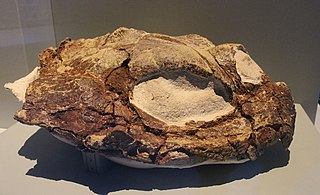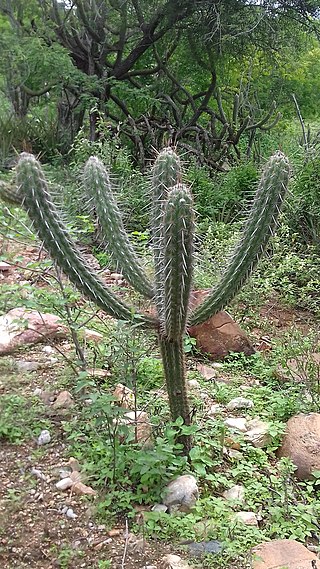Polygonus may refer to:
- Polygonus (genus), a genus of Nearctic and Neotropical spread-winged skippers
- Polygonus (mythology), the Thracian son of the sea god Proteus
Polygonus may refer to:
Drachma may refer to:

Quail is a collective name for several genera of mid-sized birds generally placed in the order Galliformes. The collective noun for a group of quail is a flock, covey, or bevy.

A raven is any of several larger-bodied passerine bird species in the genus Corvus. These species do not form a single taxonomic group within the genus. There is no consistent distinction between crows and ravens. Names are assigned to different species chiefly based on their size.
Telegonus is the name shared by three different characters in Greek mythology.

Cobra is the common name of various venomous snakes, most of which belong to the genus Naja.

Pilosocereus is a genus of cactus native to the Neotropics. Tree cactus is a common name for Pilosocereus species. The genera Caerulocereus and Pseudopilocereus are synonyms of this genus.

The Eudaminae are a subfamily of skipper butterflies. Their original type genus Eudamus is today a junior synonym of Urbanus. They are largely found in the Neotropics, with some extending into temperate North America, and one genus, Lobocla, endemic to East Asia.

Psephophorus is an extinct genus of sea turtle that lived from the Oligocene to the Pliocene. Its remains have been found in Europe, Africa, North America, and New Zealand. It was first named by Hermann von Meyer in 1847, and contains seven species, P. polygonus, P. calvertensis, P. eocaenus, P. oregonesis, P. californiensis, P. rupeliensis, P. scaldii, and a species discovered in 1995, P. terrypratchetti.
Dildo cactus is a common name used for several species of long, narrow cactus, especially

Fasciolariidae is a family of small to large sea snails, marine gastropod mollusks in the superfamily Buccinoidea. Species in Fasciolariidae are commonly known as tulip snails and spindle snails.

Polygonus is a genus of Nearctic and Neotropical spread-winged skippers in the family Hesperiidae.

Latirus polygonus, the short-tailed latirus, is a species of sea snail, a marine gastropod mollusc in the family Fasciolariidae, the spindle snails, the tulip snails and their allies.

Pilosocereus robinii is a species of cactus known by the common name Key tree-cactus. It is native to the Florida Keys in the United States. It also occurs in Western Cuba and the Northern Bahamas. It has been erroneously reported from Puerto Rico, the Virgin Islands, and Mexico. It is a rare species which is threatened by the loss of its habitat. It is a federally listed endangered species of the United States.
Plantain may refer to:

Polygonus savigny, or Manuel's skipper, is a species of dicot skipper in the butterfly family Hesperiidae. It is found in North America.

Polygonus leo, the hammock skipper, is a species of dicot skipper in the butterfly family Hesperiidae. It is found in the Caribbean Sea, Central America, North America, and South America.
In Greek mythology, Polygonus was the Thracian son of the sea god Proteus by Torone (Chrysonoe) of Phlegra. He was the brother of Telegonus. Polygonus was also called Tmolus in some accounts.
Nennius may refer to:

Pilosocereus polygonus is a species of Pilosocereus found in Hispaniola.